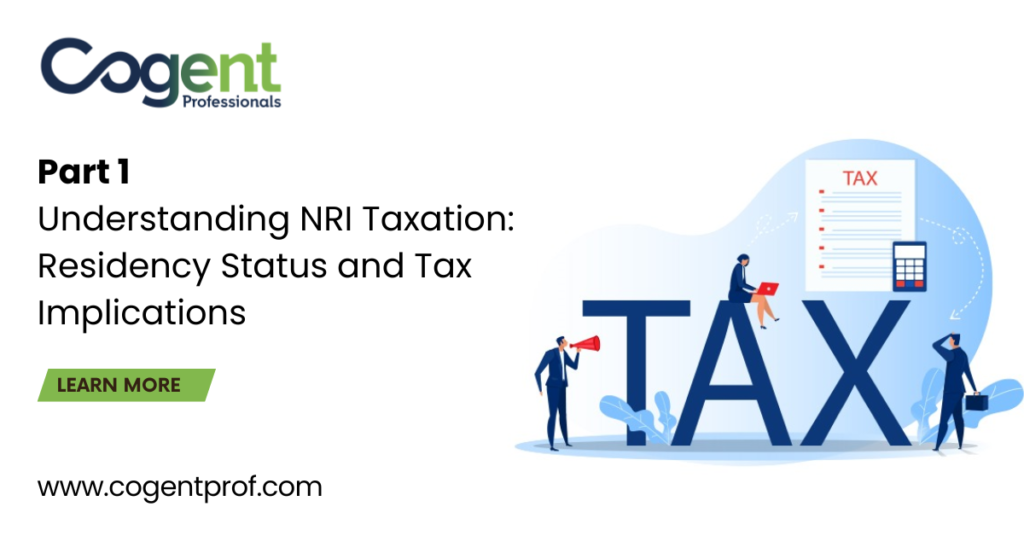
NRI Taxation Simplified: Understanding Residential Status and Taxes (Part 1)
An NRI’s income taxes in India will depend upon his/her residential status for the year.
If your status is ‘resident’, your global income is taxable in India. If your status is ‘NRI,’ your income earned or accrued in India is taxable in India.
An individual will be treated as a Resident in India in any previous year if he / she satisfies any of the following conditions:
1. If he / she is in India for a period of 182 days, or more during the previous year or
2. If he / she is in India for a period of 60 days or more during the previous year and 365 days or more during 4 years immediately preceding the previous year.
The Finance Act 2020 has amended the residency provisions to include Indian Citizen/Person of Indian Origin, who comes to visit India and shall now be considered as RNOR subject to the following conditions:
1. Total income other than foreign income is Rs 15 lakh or more.
2. The individual has stayed in India for more than 120 days but less than 182 days in the previous year.
3. The individual has stayed in India for 365 days or more in four years preceding the previous year.
Before this amendment, such individuals were classified as non-residents. Due to the amendment mentioned above, the individual’s residential status may be classified as RNOR, which will lead to increased scope of total income for taxability, loss of various exemptions allowed, etc.
It is to be further noted that in the above amendment, an individual staying for more than 182 days shall be classified as a resident irrespective of the level of income in the previous year.
Deemed residency status introduced in Finance Act 2020
Finance Act 2020 introduced the concept of ‘Deemed residency’. According to this, Citizens of India earning more than Rs 15 lakh from Indian sources shall be deemed a resident of India if they are not liable for payment of taxes in any other country.
The deemed residents shall be classified as RNOR w.e.f FY 2020–21. This amendment was brought into force to tax the incomes of Indian citizens who are not liable to pay tax in any country.
Did you know?
Residency is defined differently in the IT Act, 1961 and the Foreign Exchange Management Act, 1999 (FEMA).
An individual will be considered a ‘Resident in India’ under FEMA based on their intent to stay in India. FEMA residency is essential for individuals interested in foreign exchange transactions such as investments in foreign currency or foreign securities, acquisition or transfer of immovable property, etc.
Residency under the IT Act is determined only based on the physical stay of the individual in India, irrespective of the purpose of stay. Residency under the IT Act will help you determine your taxable income and the applicable tax rates.
Rates of Tax
Start building your financial foundation today for a brighter tomorrow
Ready to start investing? Explore your options with us today and save money with our financial strategies and planning services for both businesses and individuals.
Visit us at www.cogentprof.com Contact us via email at [email protected] or give us a call at +91 86961 99999



